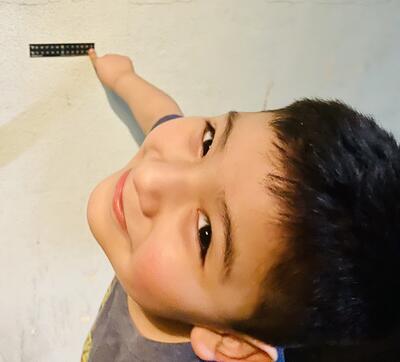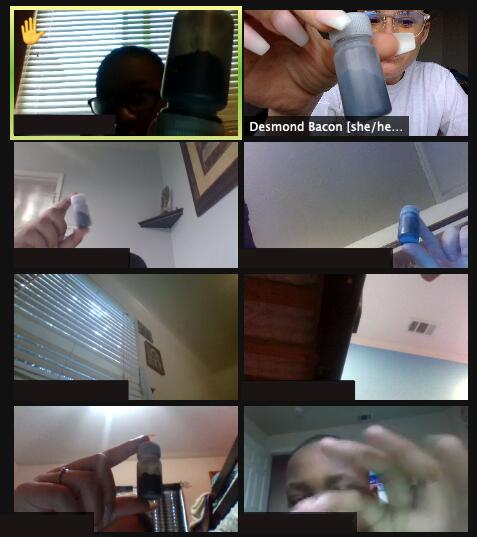
“Science helps us to understand the world around us. Kids are naturally fascinated by the scientific world, so teaching science is fun,” said Desmond Bacon, 7th & 8th grade science teacher at KIPP Philosophers Academy. “It’s important to schedule experiments into our lesson plans because hands-on activities are vital learning experiences, especially for kinesthetic learners.”
Our teachers continued encouraging our students’ natural curiosity and provided them with fun and safe science experiments that tapped into various learning styles to support equity in science and enhance access while our KIPPsters learned from home.

After all, it is never too early to love science! In fact, we’ve seen how our kindergarten KIPPsters enjoy interactive weather activities. With questions such as, ‘What is weather?’ ‘How are clouds formed?’ ‘Why does it rain?,’ our Kindergarteners found out all about temperature, wind, precipitation, sunlight and clouds, plus learned to read the numbers on their very own thermometer scale and correspond those to the temperature.
Well, we just might be teaching the future meteorologists, Erica Sanchez, Grade-Level Lead at KIPP Empower Academy, shared that “our students now use key vocabulary when describing temperature changes.” With the engaging hands-on activities that were not in front of a screen, “students were very much engaged with lessons and we also noticed a higher completion rate of assignments,” said Ms. Sanchez. “I love that our students wanted to continue talking about their science work during our community circle,” she added. “Parents were very happy with all activities.”

Similarly, Ms. Bacon enthusiastically said, “it was AMAZING having [grade-level] take-home kits — I had 100% attendance with 100% of cameras turned on!” With the thousands of chemical changes we experience in everyday life, his 7th grade class discovered the meaningful science behind a chemical reaction. In other words, the process in which one or more substances, also called reactants, are converted to one or more different substances, known as products.1 “Students loved observing the repeating molecules. After putting their solution in the fridge, they came to the next class so excited to show the final product.” Just like scientists, our 7th graders reported their observations and developed questions about the phenomena. Students then investigated and collected evidence to obtain answers. “This [experiment] reminded me of the pure joy I feel when I see a child excited about their learning,” expressed Ms. Bacon.
Hands-on science matters. It not only helps develop a deeper understanding of the subject, but gives KIPPsters the experience to connect skills and knowledge learned in the (virtual) classroom to real-world situations. As the U.S. Department of Education has stated, “In an ever-changing, increasingly complex world, it's more important than ever that our … youth are prepared to bring knowledge and skills to solve problems, make sense of information, and know how to gather and evaluate evidence to make decisions. These are the kinds of skills that students develop in science [class]... .”2
With experiential learning in science, students are also able to analyze and reflect: ‘I did it; I created this because of what I learned.’ This awareness is extraordinarily powerful, because it shows students that they can create change. Our KIPPsters are ambitious to learn how their world works, experiment to make an impact and become a catalyst for innovation, and together with families and communities we are dedicated to help make that a reality.
1 Chemical Reaction. Retrieved from www.britannica.com.
2 Science, Technology, Engineering, and Math, including Computer Science. Retrieved from www.ed.gov.
